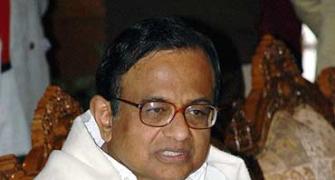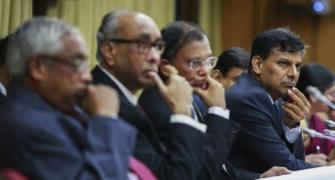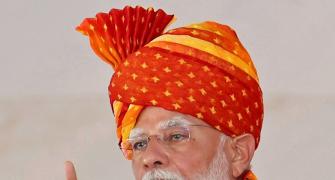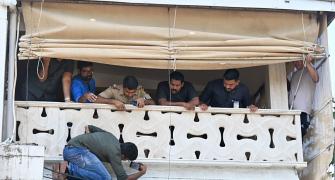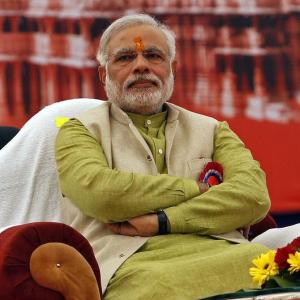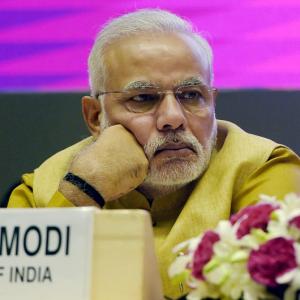It is no exaggeration to say that the defining event of 2014 was the emergence of Prime Minister Narendra Modi as India's most popular leader.
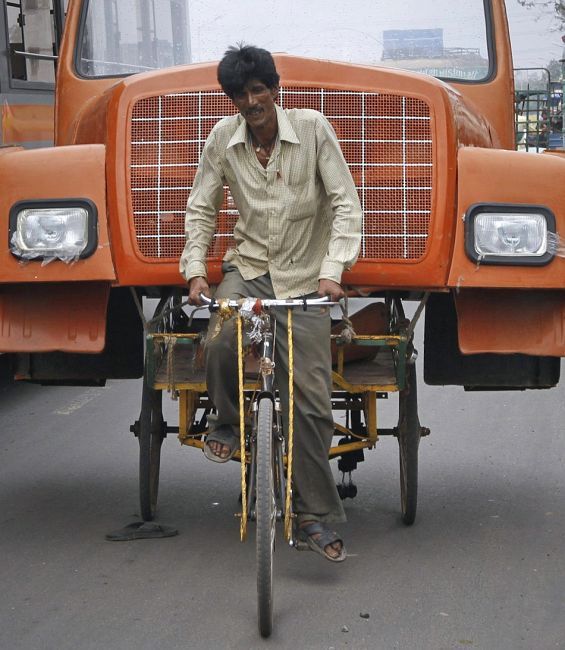
In April 2012, Fareed Zakaria of CNN had predicted that the December 2012 Gujarat election would spell oblivion for Mr Modi.
But exactly the opposite unfolded - it propelled him into national prominence.
By the dawn of 2014, his stature had grown sufficiently for the Bharatiya Janata Party (BJP) to name him its prime ministerial candidate in the May 2014 parliamentary elections.
But few commentators were still willing to grant Mr Modi an election victory that would propel him to the top office of the country. Unable to digest the decisive victory the BJP had scored in December 2013 state elections, the bulk of the media went to work to build Arvind Kejriwal of the Aam Aadmi Party into a national leader on the back of his rather modest victory in Delhi.
Victims of wishful thinking, many also routinely produced analyses showing how a fractured BJP mandate would force Mr Modi to step aside in favour of a candidate more acceptable to more moderate potential coalition partners.
But Mr Modi went on to wage what will perhaps remain one of the most effective and innovative election campaigns in history.
He criss-crossed the country many times over, clocking 300,000 kilometres to address 550 packed rallies in person.
This was topped by speeches via instant three-D image transmission to groups of citizens in 1,300 locations and "chats over tea" through video conferencing with citizens at 4,000 sites.
The result was the first ever absolute majority in the Lok Sabha in Indian history for a party other than the Congress.
While Mr Modi's campaign message, "good days are ahead", injected optimism into a nation in near depression at the time over the paralysis under the Congress-led central government, economic growth figures continued to be tepid.
In May 2014, news came that the growth rate during the January-March 2014 quarter had been a paltry 4.6 per cent, ending fiscal year 2013-14 at a lacklustre average rate of 4.7 per cent.
The subsequent two quarters showed some improvement, registering successively growth rates of 5.7 per cent and 5.3 per cent - but the improvement fell short of the promised "good days".
The new prime minister brought unprecedented vigor to his office.
He restored confidence among the bureaucracy, improved inter-ministerial coordination and greatly speeded up environmental clearances.
The inspector raj was curtailed by the introduction of self-certification, with inspections limited to a small sample of randomly selected factories.
Red tape was cut for new businesses via the introduction of a single-window facility.
In his Independence Day speech on August 15, 2014, the prime minister announced the closure of the archaic institution of the Planning Commission and launched the "Make in India" campaign to focus attention on manufacturing.
Less than two months later, on October 2, he went on to launch the important Swachh Bharat campaign with the aim of freeing the country of dirt and open defecation by October 2, 2019, the 150th birth anniversary of Mahatma Gandhi.
Partially aided by the softening of the global commodity markets, including those for food and crude oil, India also saw a significant break in inflation.
Unprecedented outreach by the prime minister has led to great enthusiasm about India among the major world powers as well as our neighbours.
True to his word, Mr Modi has turned foreign policy into economic diplomacy, using his visits abroad to "sell" India as an investment destination.
These positive developments were marred by a somewhat disappointing Budget in July.
As I noted in my own commentary, retrospective taxation was not ended cleanly; at 49 per cent the cap on direct foreign investment in defence was a tad short of that necessary to bring foreign investment in large volume to Indian soil; and an opportunity to cut middle-class subsidies such as that on liquefied petroleum gas cylinders was missed.
Uncertainties associated with the tax laws, which led Nokia to close its factory and Foxconn to follow suit in the last quarter of 2014, remained.
Revival of economic activity had required a hike in capital expenditure in the Budget.
But finance ministry bureaucrats would not breach the 4.1 per cent limit on fiscal deficit, set by the outgoing finance minister, to accommodate the increase.
With growth remaining tepid, there is now talk of raising capital expenditures in the corridors of the ministry. But the scope for shifting gears at this late hour within the current fiscal year remains limited.
The silver lining on the reform horizon in 2014 has been the lead given by the dynamic chief minister of Rajasthan, Vasundhara Raje.
Exhibiting unusual courage for a state leader and taking advantage of the flexibility offered by the prime minister in amending laws under the Concurrent List, she amended some of the most contentious labour laws.
Madhya Pradesh has now followed Rajasthan in this area, raising the hope that the reforms seen as politically difficult may gradually spread through the nation.
Rajasthan, in turn, is now contemplating the reform of the land acquisition Act and the right to education Act.
While the euphoria immediately following the elections has given way to more moderate expectations, the mood remains far more optimistic at year-end than at the beginning. But the real test of the government will be in the next Budget.
Without a clear road map of reforms in it, the dream of "good days" will run the risk of becoming history.
The Budget is the only quasi-formal compact between people and the government, making the articulation of the development strategy in it essential.
The finance minister and his able team carry a heavy burden on their shoulders.
India needs millions of good jobs and they will not be forthcoming without the country replacing China as the manufacturing workshop of the world, especially in the labour-intensive products.
And this requires entrepreneur-friendly reforms in areas of labour, land, higher education and infrastructure.
The nation will be looking for an outline of precisely these reforms in the forthcoming Budget.
Arvind Panagariya is a professor of economics at Columbia University


